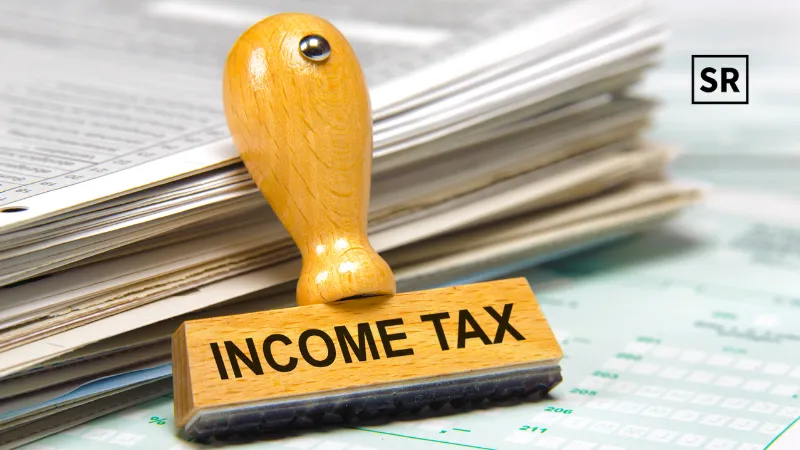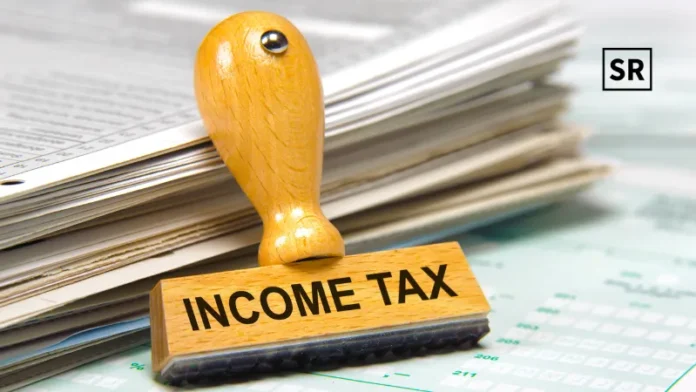
In Singapore, people pay income tax only on money earned inside the country, such as salaries, business income, or rent. Money earned overseas is not taxed unless it is brought into Singapore. The system is progressive, meaning that the higher your earnings, the higher your tax rate. People with low incomes may pay nothing, while high earners pay up to about 22% which is still lower than in many countries.
Businesses in Singapore pay a flat 17% corporate tax on their profits. There is also no capital gains tax, so if you make money by selling things like stocks or property you don’t pay tax on those profits. The tax system is kept simple, fair, and business-friendly, which helps make Singapore a popular place to live, work, and invest.
How to file Income tax in Singapore
In Singapore, filing income tax is simple and mostly done online. Every year, tax season starts on 1 March and ends on 18 April for individuals. Most people get a notification from IRAS (the government agency that manages taxes). If your employer is part of the Auto-Inclusion Scheme (AIS), your salary details are already sent to IRAS. In that case, you just need to log in to the IRAS website using your Singpass and check if the information is correct. If it is, you can submit your tax return easily.
If you earn other types of income, like rental income, business profits or money from overseas, you must declare them too. IRAS will then calculate the tax you need to pay and send you a Notice of Assessment (NOA) between May and September.
You can pay your tax all at once or in monthly installments using GIRO (a direct debit system). Filing and paying on time is important because late submissions or payments can lead to penalties. Overall, Singapore’s tax system is fast, user-friendly, and mostly paperless, making it easy for residents to handle their taxes.
How to Calculate Income tax In Singapore
Income tax in Singapore depends on how much money you earn in a year. The country uses a progressive tax system, which means the higher your income, the higher the tax rate. To start, you add up all your income earned in Singapore, such as your salary, bonuses, rental income, and business profits. Some income, like foreign income that isn’t brought into Singapore, usually isn’t taxed.
After adding up your income, you can subtract any tax reliefs or deductions you qualify for. This could include CPF contributions, donations to approved charities or work-related expenses. Once these are deducted, you get your taxable income, which is the amount used to calculate your tax.
Calculating and Paying Tax
Singapore has different tax rates for various income levels, starting from 0% for the lowest earners and increasing for higher income brackets. You apply the correct tax rates to your taxable income to find out how much tax you owe. The IRAS website also has an online calculator where you can enter your income and reliefs to see your tax automatically. After the calculation, you can pay your tax in one lump sum or in monthly installments using GIRO.
Income Tax Rate in Singapore
In Singapore, income tax rates for individuals are progressive, which means the more you earn, the higher the percentage of tax you pay. People who earn less may pay very little or even no tax, while those with higher salaries pay more.
The tax rates start at 0% for the first portion of your income and increase in steps as your earnings rise. For instance, someone with a modest salary pays only a small percentage, but someone earning a higher income will pay a larger percentage on the part of income above each threshold.
This system is designed to be fair, so that higher earners contribute more and lower earners pay less. Every year, the Inland Revenue Authority of Singapore (IRAS) updates the tax rates and provides tables showing how much tax applies to each income bracket. By combining these rates with possible tax reliefs and deductions, people can calculate exactly how much tax they owe.
Conclusion
Singapore’s tax system is designed to be easy, fair, and clear for both people and businesses. With progressive tax rates, available reliefs, and mostly online filing, residents can quickly understand and manage their taxes. The low personal and corporate taxes, no capital gains tax and simple filing process make Singapore a great place to live, work and invest. By filing on time and using deductions, everyone can pay the right amount of tax while making the most of the system’s benefits.
FAQs
How does Singapore’s income tax system work?
Singapore uses a progressive tax system, which means the more you earn, the higher the tax rate. Low-income earners may pay little or no tax, while high-income earners can pay up to about 22%.
What is the corporate tax rate in Singapore?
Businesses in Singapore pay a flat 17% corporate tax on their profits.
When is the income tax filing period?
For individuals, tax season usually runs from 1 March to 18 April every year.





